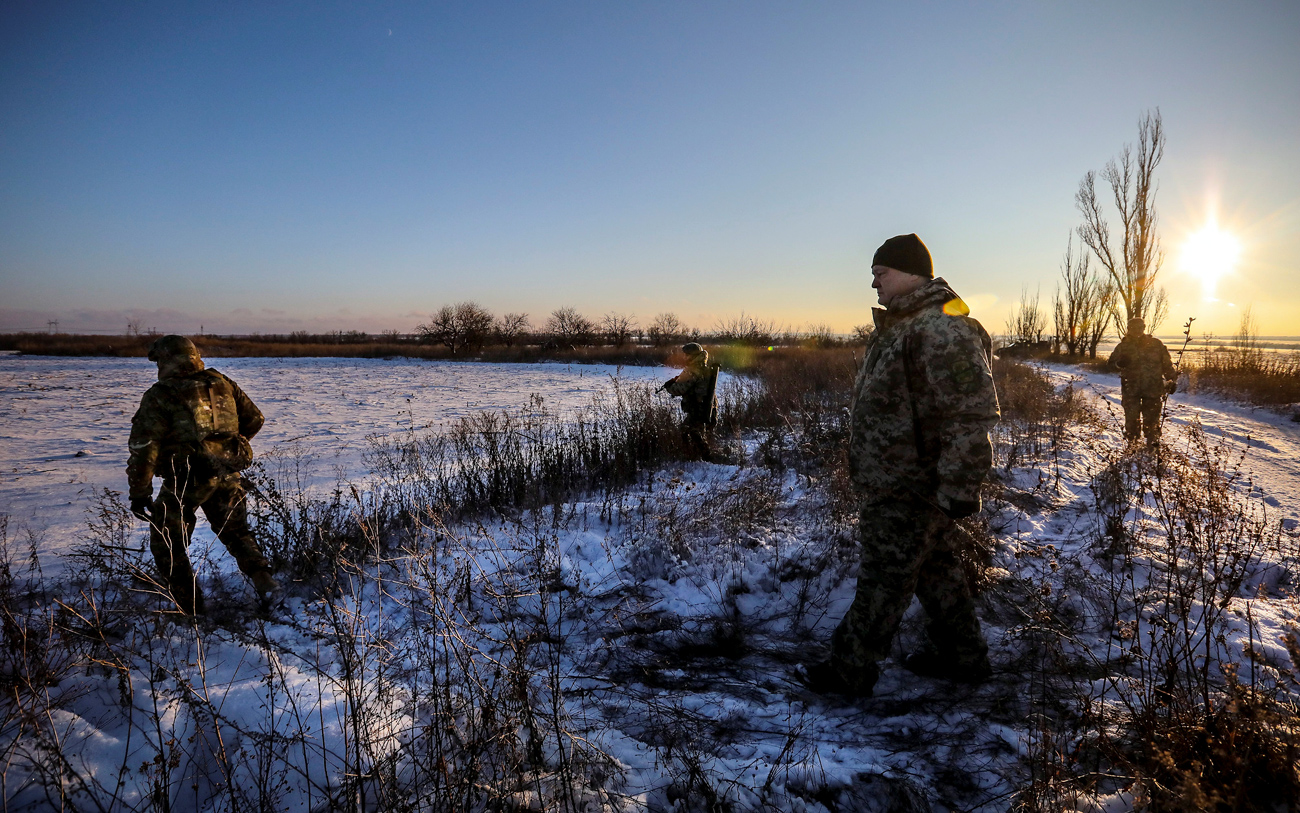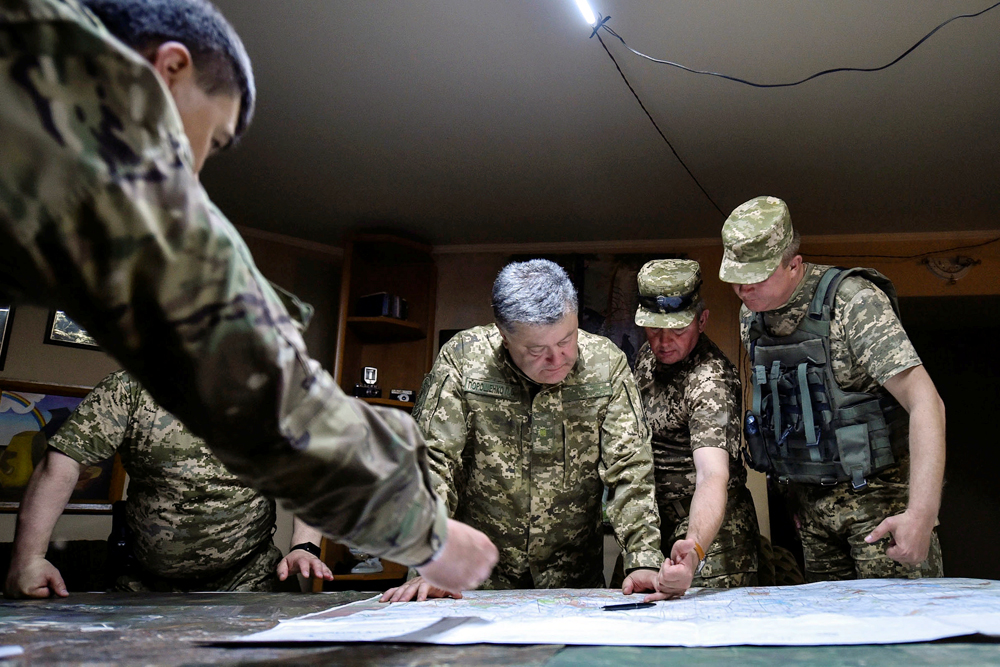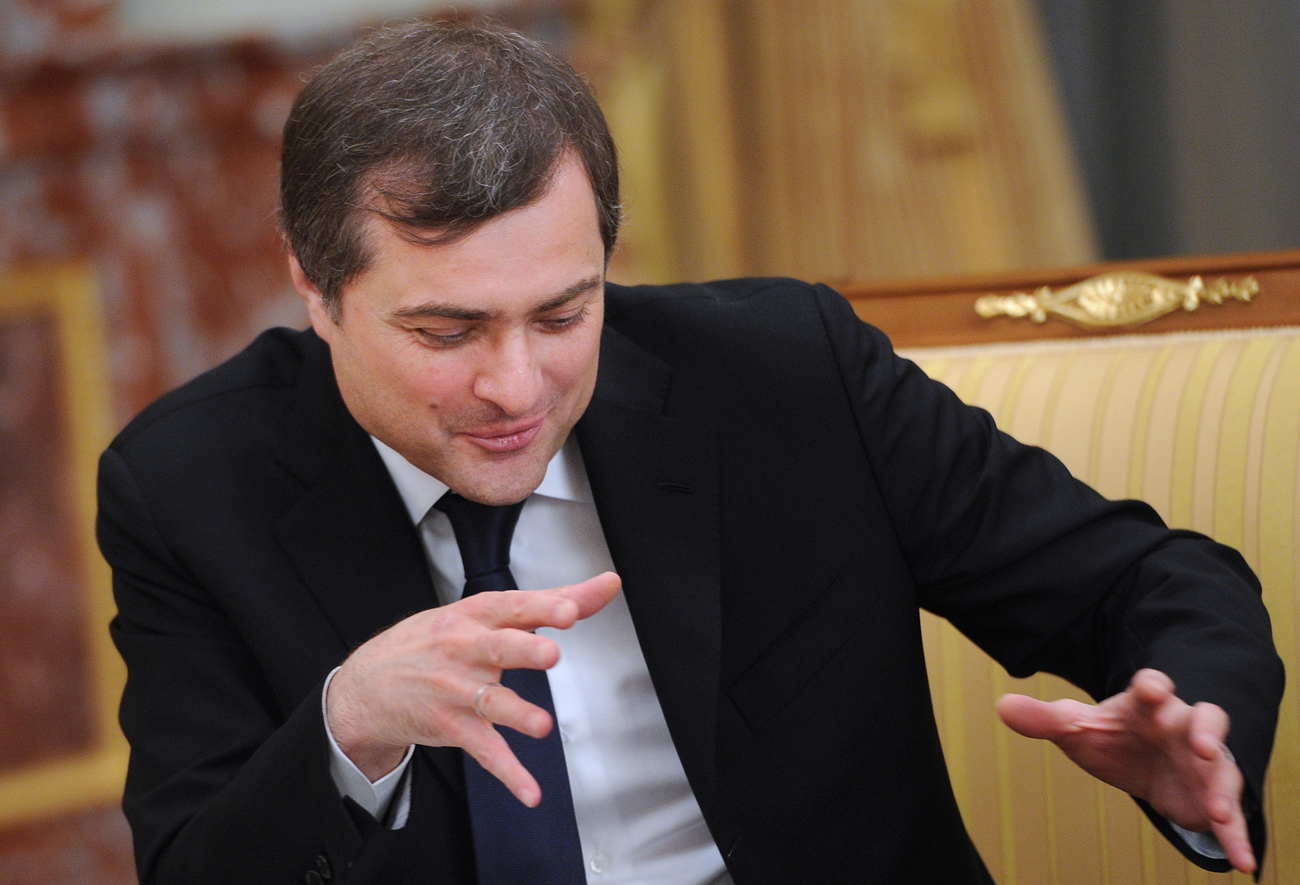A sudden burst of fighting in Donbass leaves dozens dead

Some experts see the latest fighting as part of Ukraine's desire to put Donbass back on the international agenda. Photo: Ukrainian President Petro Poroshenko is escorted by servicemen during a visit to a defence post.
ReutersIn the past few days tensions in eastern Ukraine suddenly and unexpectedly escalated, with Kiev and the Donetsk People's Republic (DNR) accusing each other of starting the shelling on Jan. 29 and Jan. 30. Whatever the truth, dozens are dead and the outskirts of Donetsk have been left without electricity.
Ukrainian President Petro Poroshenko cut short his visit to Germany and urgently convened an emergency meeting of the Contact Group for the settlement of the Donbass conflict, as well as appealed to the United Nations.
Russia is once again blamed for events. "We demand the Russian Federation cease hostilities immediately and to comply strictly with the ceasefire," said an appeal by Ukraine's envoy at the UN, Volodymyr Yelchenko.
On Jan. 31 the OSCE Permanent Council held an emergency meeting in Austria.
Experts point out that the fighting began on the day following the telephone conversation between Russian President Vladimir Putin and newly-elected U.S. President Donald Trump, who has repeatedly stated his desire to distance himself from the Ukrainian conflict.
Escalation is a way to draw attention to oneself, Russian experts said. Anyway, the DNR reciprocated and can continue reciprocating for a long time to come. The result is that the frozen conflict remains while the Minsk accords are quickly melting away.
Will Trump play such games?
Fighting broke out near Avdeyevka (the demarcation line passes on its outskirts), and the DNR capital, Donetsk. Avdeyevka still has an uncertain status, and before the recent round of fighting it was under Ukraine's control. But a few days later the militia took control of it. Residents have no heating, no electricity, no water, and OSCE observers say tanks and howitzers are stationed in the town.
Information about the dead and wounded varies. Kiev said that in the space of 24 hours their positions came under fire 71 times and three servicemen were killed.
The DNR claims Ukraine suffered much heavier losses - at least 78 killed and 76 wounded during the fighting. It also claims that the Ukrainian army launched 2,411 shells and mortar rounds against the DNR's territory in 24 hours and was plotting a terror attack in a DNR military unit using a militiaman it had recruited.
"No one knows what really happened and who lit the match to the powder keg; the situation has been potentially explosive all this time as neither side is implementing the Minsk accords," said Kost Bondarenko, director of the Ukrainian Politics foundation.
He added that Avdeyeva was bound to happen sooner or later, and the desire to draw the attention of the new White House administration or the OSCE has nothing to do with it.
"It's unlikely there could be a link here because Trump does not play such games, and Kiev knows this," Bondarenko said.
Stalemate
Some experts see the latest fighting as part of Ukraine's desire to put Donbass back on the international agenda, while others say that it reflects the Ukrainians' unwillingness to implement the Minsk accords.
"Such aggressive actions, supported by the Ukrainian armed forces and with the participation of the Ukrainian armed forces, undermine the goals and objectives of the Minsk accords… Moreover, it looks very much like an attempt to divert attention from, shall we say, their very shaky domestic situation," said Dmitry Peskov, press secretary to the Russian president, in an interview with Kommersant FM radio station.
"The Islamic State, Syria, China and domestic problems - these issues concern the U.S. much more at present than the conflict in Donbass with which everyone is fed up," said Andrey Suzdaltsev, deputy head of the World Economy and World Policy Department at the Higher School of Economics. "And here is a coincidence - the fighting happens at the same time as Poroshenko is visiting Berlin. It looks very suspicious. Poroshenko is playing a double game."
Ukraine's affairs are indeed in a poor state, said Boris Shmelev, head of the Russian Foreign Policy Centre at the Institute of Economics of the Russian Academy of Sciences. The success of reforms is modest, the economy is in a deep crisis and Poroshenko faces severe criticism.
"If Kiev provokes, the Donbass immediately responds," said Shmelev. "There are no prerequisites for resolving the conflict, and the situation is a stalemate, and from time to time the strings need to be pulled."
Neither Moscow nor Washington, however, will have strong feelings about Ukraine any time soon.
"Donbass has enough firepower to repel any attack, and their job is to hold on. They can sit there for a long time until Russia and the U.S. slowly come to an agreement on how to put joint pressure on Poroshenko regarding implementation of the agreements," Shmelev said.
Read more: Ukraine runs out of money to build wall on Russian border>>>
If using any of Russia Beyond's content, partly or in full, always provide an active hyperlink to the original material.
Subscribe
to our newsletter!
Get the week's best stories straight to your inbox

